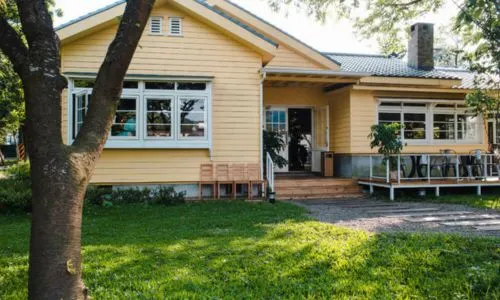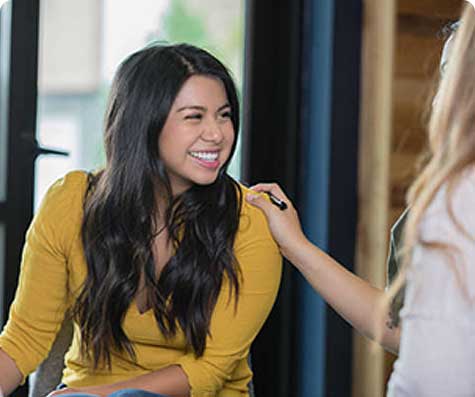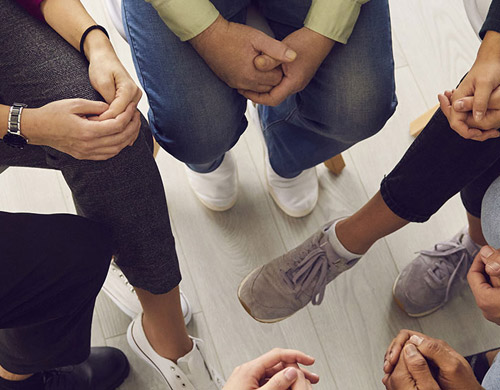It can feel so heartbreaking when you or someone you love has a problem with alcohol or drug addiction, that you don’t know how to get help. Although addiction is a disease, it can be managed when evidence-based therapies are utilized. Long term recovery is possible.
Our Guide will detail how integrating addiction treatment approaches can enable long-term recovery for you or a loved one.
What is Addiction Rehab (Rehabilitation)?
Addiction ‘rehabilitation’ is a broad term that describes the psychotherapeutic and medical treatments that are utilized to help people recover from their dependencies on illegal drugs or prescribed medications. Rehab approaches are successful when they are personalized to your lifestyle needs, and may encompass residential programs, outpatient programs, medically-managed detoxes and relapse prevention programs.

Facts & Statistics about Addiction in Chula Vista
Prevalence of Substance Use Disorder, by Drug Type
(IN THOUSANDS)
- 2,7578.5%Any Substance
- 2,0886.4%Alcohol
- 1,0683.3%Ilicit Drugs
- 2060.6%Pain Medication
Drug- and Alcohol-Induced Deaths by Age Group, California, 2016
- Alcohol-Induced
- Drug-Induced
- 18 to 250.5
- 9.6
- 26 to 354.3
- 13.9
- 36 to 6424.2
- 22.9
- 65+23.7
- 9.4
Drug Use, by Selected Type and Age Group California, 2015 to 2016
- 12 to 17
- 18 to 25
- 26+
- Marijuana*13.2%
- 34.0%
- 13.5%
- Misuse of Pain Medications3.5%
- 8.0%
- 4.3%
- Cocaine0.8%
- 7.2%
- 1.8%
- Heroin0%
- 0.4%
- 0.2%
What are the treatment options available in Chula Vista?
Through integrating treatments, the hidden causes of drug addiction can be tackled and overcome. Although treating the symptoms of addiction is necessary, you also must build coping skills to address the issues that lead to your drug addiction or alcohol addiction.

Private Residential Programs
A residential rehab program requires you to live at the treatment center and receive all rehab treatment within the property. One of the key benefits is having 24/7 treatment and support.
There is enormous value in taking yourself away from the home environment and becoming fully focused in the treatment program, because you are no longer sensitive to the triggering environments that may have caused you to abuse substances. Successfully completing your rehab program and avoiding relapse is much easier when you remain in a secure and supportive environment. Residential addiction treatment programs are recommended for patients with strong alcohol or drug dependencies, co-occurring illnesses or dual diagnosis.
We know that the first year of recovery are challenging and after a residential rehab program, you must remain focused in order to maintain recovery. Completing your residential treatment program is the beginning of your newfound independence and you need to focus on setting goals for your substance-free future.
Do You Need Help?
We work together towards recovery.

Sober Living Programs
Sober living treatment programs help you to have more control over your life, through guidance and a support structure. Sober living programs comprise of:
- Support throughout the day from a house manager
- Establishing frameworks for consistent recovery behavior
- Nurturing supportive relationships with other people who are going through the same kinds of issues
Detox Only Programs
The need for detoxing a substance from your body is the first stage of rehabilitation, because it removes traces of the substance and puts an end to your physical dependence. As your body stabilizes without the substance in your body, you may experience withdrawal symptoms.
This is only the beginning of your rehabilitation process, and the next steps are to confront and overcome the underlining causes of your addiction, so that the pattern does not continue. It is possible to still develop withdrawal symptoms and cravings for some time after your detox is complete. Relapse is less of a problem if you are equipped with the life skills that will help you navigate your path in recovery.
Outpatient Programs
Outpatient treatment programs offer greater flexibility as you can attend work commitments while living at home, but you come to the rehab center for addiction treatments.
Outpatient programs teach you:
- Education on substance use
- Therapeutic and psychological interventions including group and individualized therapy – Outpatient treatment programs can last between a few months to over a year, depending on your needs.
Paying for Private Treatment
The cost of private treatment may be covered through your insurance policy or paid with your own funds. A good selection of health insurance providers offer some cover for rehab, which includes detox, the rehab treatment program, medicines you may need and aftercare. The amount of cover provided will differ based on the fine print of your policy and your provider’s terms and conditions. Always check to see the amount you can claim from your cover before you take part in a treatment program.
To find out what you could qualify for, click on our Verify Your Insurance page here. If you decide not to claim against your insurance policy, you will be liable to pay for your rehab with your own funds. Many treatment centers are willing to extend payment options to clients when costs are unaffordable.
State Funded Programs
If you are battling with drug or alcohol dependency and have no financial means to fund private rehab, you could be accepted for a state-funded rehabilitation program. These programs utilize government funds from state budgets, Medicaid and federal government to provide addiction recovery by offering:
- Medically-assisted drug or alcohol detox
- Rehabilitation services and aftercare support

State-funded rehab programs are accessible to people who have no private health insurance or who reside in low income households. When applying you will need:
- Medical information about your addiction issues
- Evidence of where you live
- Proof of your income
- Evidence that shows you can live legally in the US
Extensive details about the application process can be found on https://www.grants.gov/. You can also download this file for your state agency’s direct contact details.
The following state-funded addiction rehab programs are available in Chula Vista:
McAlister Institute for Trt and Educ (MITE)/STRC
1180 3rd Avenue, Suite C-6, Chula Vista, CA 91911
619-691-1045 x2002
www.mcalisterinc.orgMAAC Project Nosotros
73 North 2nd Avenue, Suite B, Chula Vista, CA 91910
619-426-4801
www.maacproject.orgUnion of Pan Asian Communities (UPAC) New Leaf Recovery Center South
865 3rd Avenue, Suite 112, Chula Vista, CA 91911
619-271-7992
www.upacsd.com
Maintaining Addiction Recovery in Chula Vista
When you leave treatment, you may notice some difficulties adjusting to life without substances. At rehab you were in a professionally supported, safe environment. When you leave, you may encounter new challenges or triggers that test your coping skills in ways you may not have anticipated. Long term recovery is more challenging if you have a severe dependency or if you return to your new life without social support structures in place. Without the relevant support and aftercare to guide you in your new life, relapse is a real possibility.
The following AA/NA meetings are available in Chula Vista:
Casa Nosostros
Piensalo Bien Open:
73 North Second Avenue, Chula Vista, CA, 91910
Sunday: 7:00 pm
https://www.drugstrategies.org/CLEAN SUNDAY GROUP
Clean Sunday Group, Children Welcome, Topic,
Discussion/Participation and Open:
330 Moss Street, Chula Vista, CA 91911
Sunday: 10:30 am
https://www.drugstrategies.org/940 Hilltop Drive
Open: 940 Hilltop Dr., Chula Vista, CA 91911
MONDAY: 6:30 PM
https://meetings.intherooms.com/
Aftercare & Alumni Programs
An aftercare program is a resource to support your recovery when you go back to your daily life. Relapse can happen in up to 60% of cases, and because of the unpredictability of life outside of rehab, having relapse prevention & support is an important part of your journey in recovery.
When your rehab program draws to an end, we will discuss the therapies and counseling that is supportive of your long-term recovery and any appropriate aftercare provisions will be devised to assist you. Alumni programs are one bonus to completing rehab and gives you community support with ex-clients and staff members. You will be provided with access to mentorship and guidance from other members in recovery, and take part in other events. In addition, you may want to take the opportunity to be supportive of others if you want to.
Support Groups (Fellowship Meetings)

Support groups remain an important part of long-term recovery because social responsibilities enable long-lasting sobriety. Recovery support groups including AA (Alcoholics Anonymous) and NA (Narcotics Anonymous) facilitate regular support using the 12 step principles and local weekly meetings. When you attend local support group meetings you will listen to, and learn from, the lived experiences of other individuals. By building friendships and staying committed to the 12-steps, those in recovery can feel empowered to take responsibility for themselves and protect those around them.
Support for Families & Children Affected by Addiction

Some people in an addicted household are impacted more than other individuals. While its true that the person struggling with dependence certainly needs help and support, other members of the household also need counseling. Family support groups provide you and your loved ones with important coping lessons for your own life and help you to offer greater support to the person who has the dependency.
Examples of Family and Child Support Groups include:
- Parents of Addicted Loved Ones
- SMART Recovery Family & Friends
- NAMI Family Support Groups
- Al-Anon
- Families Anonymous
- Alateen
- Nar-Anon









